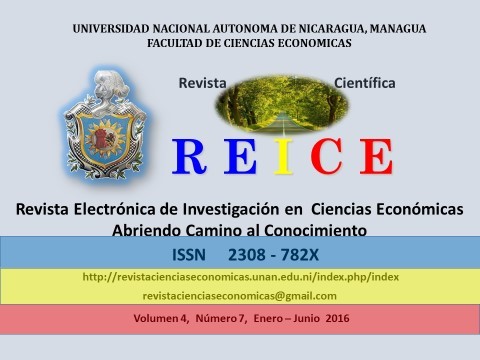Evaluation of public programs
DOI:
https://doi.org/10.5377/reice.v4i7.2827Keywords:
Public programs, program evaluation, guidelines, public value chain, performance indicatorsAbstract
The objective of this article is to explore more deeply in important aspects to be evaluated in a public budget program as well as conceptual aspects of evaluation in reference to the implementation of a logical framework as a methodological tool for assessing the structure of projects and public programs through a public value chain. The work is based on research of specialized literature on the subject in the case of Latin America. The research results indicate that these countries have made progress in the field of design, implementation and evaluation of plans and programs, however in the field of assessing progress it is not satisfactory, specifically in terms of monitoring and evaluation of public programs. One of the reasons that explain the above situation is that these countries do not have a solid database to reflect the accounting, financial and proprietary records of programs and projects in the public sector. Therefore, a strong statistical system would provide qualitative and quantitative quality information to calculate the cost of the program’s goals in order to be able to monitor the physical and financial evaluation of programs and projects in the public sector.Downloads
Download data is not yet available.
Downloads
Published
12-09-2016
How to Cite
Chavarría Montenegro, J. A. (2016). Evaluation of public programs. REICE: Revista Electrónica De Investigación En Ciencias Económicas, 4(7), 105–126. https://doi.org/10.5377/reice.v4i7.2827
Issue
Section
Artículos de Investigación

